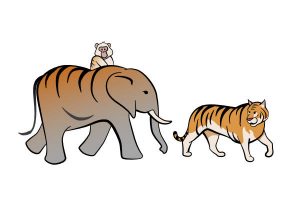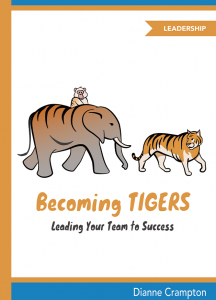Out of sight, out of mind.
Absence makes the heart grow fonder.
The first bird gets the worm.
The second mouse gets the cheese.
Clothes make the man.
Don’t judge a book by its cover.
Look before you leap.
He who hesitates is lost.
The best things in life are free.
You get what you pay for.
Too many cooks spoil the broth,
Many hands make light work.

We love these quotes for the harsh truths. All of the above are precise observations of human behavior. Both ring true in any setting. Whether in the home or in the workplace, there seems to be a never-ending pull between and among people with different opinions, upbringing, background, and position in the corporate totem pole.
When it comes to team organizations (particularly those that seem to have developed a dynamic of interdependence), “many hands make light work” holds more water than “too many cooks spoil the broth”.
Behind every successful business, foundation, or organization is an ethical, productive, cooperative, and quality-focused workforce. This means that team members aren’t just engaged. They also derive immense satisfaction from work.
One of the many teamwork dynamics I’d like to point out is consensus decision-making. Consensus decision making is a vibrant way of reaching an agreement among members of a group. In lieu of conducting polls and having the majority get their way, a problem-solving group is formed. This group is assigned to find a solution that everyone will actively support.
It’s a great team dynamic to have. Power is shared (members take collective control over decisions that affect them). Better decisions are made (the team is more likely to come up with win-win solutions).
Bring team consensus to life

Becoming TIGERS follows the adventures and travails of two tigers, Kali and Ashoka — two leaders who have the same goals and similarly-capable tribes, yet are poles apart when it came to governance. While both have access to the same jungle resources, one tiger was hated. The other was loved. One tribe was headed towards ruin, while the other flourished.
I won’t want to ruin your reading pleasure by spiking this article with spoilers. The story is a great read (even for budding leaders as young as nine years old). But the key takeaways from this book are:
- The importance of having a tribe committed to the same goals despite differences in ability, opinion, skill set;
“You don’t need a large tribe to accomplish great things; you just need a tribe where everyone is committed to the same goals.”
- And the significance of allowing team members to do the work they know how to do without micromanaging them.
“… it would be silly for a tiger to tell a monkey where to place their paws as they climbed …”
When a leader interferes and constantly instructs his people to perform tasks that they are skilled at, no one starts working until they are directed.
The story involves an interesting team from the jungle, but it won’t take you long to realize how the workplace is no different from the wilderness setting. Humor aside, the same easily happens in the workplace and how!
Be warned… you won’t look at your workplace the same way again.
Copyright TIGERS Success Series, Inc. by Dianne Crampton
 About TIGERS Success Series, Inc.
About TIGERS Success Series, Inc.
Why guess what is needed for workforce development when it is completely unnecessary?
Our mission is to improve the world of work for millions of employees while their organizations thrive. We accomplish this with a researched and validated comprehensive, robust system for improving both your work environment and profitability.
We specialize in developing high performance work cultures. Scaled to grow as your organization and leadership performance grows, our proprietary Team Behavior Profile, consulting and group facilitation services, and online TIGERS micro training packages are based on six researched principles. Visit us today to learn more
 About TIGERS Success Series, Inc.
About TIGERS Success Series, Inc.